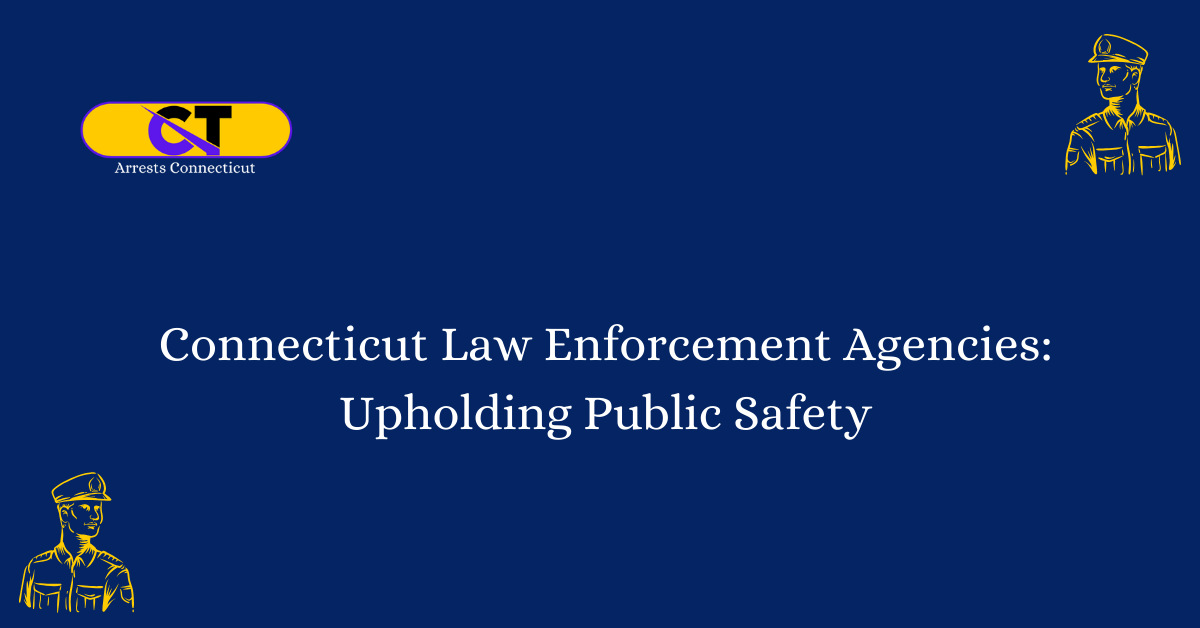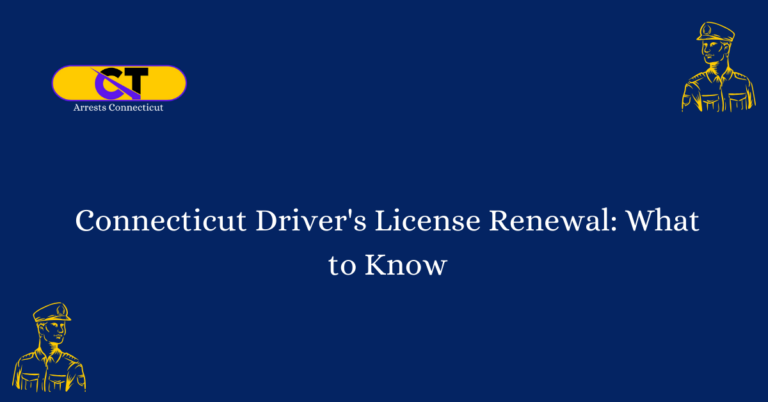Connecticut Law Enforcement Agencies Upholding Public Safety
Connecticut, nestled in the heart of New England, is known for its picturesque landscapes and vibrant communities. Ensuring the safety of its residents is a top priority for the state, and the responsibility falls on the dedicated law enforcement agencies that operate within its borders. In this article, we will delve into the intricate workings of Connecticut’s law enforcement, exploring their strategies, collaborations, and the innovative approaches adopted to uphold public safety.
Connecticut State Police
At the forefront of law enforcement in the state is the Connecticut State Police (CSP). Established in 1903, the CSP plays a pivotal role in maintaining peace and order. With a multifaceted approach, they deploy troopers across highways, rural areas, and urban centers. Specialized units within the CSP, such as the Major Crime Squad and the Traffic Services Unit, work cohesively to address a spectrum of challenges, from criminal investigations to traffic management.
Local Police Departments
Connecticut comprises numerous cities and towns, each with its own unique set of challenges. Local police departments are integral to maintaining public safety at the community level. From Hartford to New Haven, these departments focus on community policing initiatives, fostering relationships with residents to better understand and address specific needs.
Collaborative Efforts
Interagency collaboration is a cornerstone of Connecticut’s law enforcement strategy. Agencies at the federal, state, and local levels work in tandem to share information and resources. Joint task forces target organized crime, drug trafficking, and other cross-jurisdictional issues, amplifying the effectiveness of law enforcement efforts.
Community Policing Initiatives
Connecticut law enforcement agencies actively engage in community policing initiatives to build trust and rapport with residents. Programs such as neighborhood watch, school resource officers, and community outreach events are designed to bridge the gap between law enforcement and the public. Building strong community ties is viewed as a proactive measure to prevent crime and address concerns at the grassroots level.
Technological Advancements
In an era dominated by technology, Connecticut law enforcement agencies leverage cutting-edge tools to enhance public safety. From advanced surveillance systems to predictive analytics, these agencies use data-driven approaches to identify and address emerging threats. The integration of body-worn cameras enhances transparency and accountability, fostering a culture of trust between law enforcement and the communities they serve.
Training and Professional Development
Ensuring that law enforcement personnel are well-trained and equipped to handle diverse situations is a priority in Connecticut. Ongoing professional development programs cover areas such as de-escalation techniques, cultural competency, and crisis intervention. By investing in their personnel, law enforcement agencies aim to provide effective and compassionate services to the community.
Addressing Mental Health Challenges
Connecticut recognizes the intersection of mental health and public safety. Law enforcement agencies collaborate with mental health professionals to develop crisis intervention teams. These teams are trained to respond to situations involving individuals experiencing mental health crises, aiming to provide assistance and support rather than punitive measures.
Youth and Education Programs
Prevention is a key element in maintaining public safety. Law enforcement agencies in Connecticut actively participate in youth and education programs to steer young individuals away from crime. School resource officers work closely with educators and students to create a positive and safe learning environment.
FAQS
What is the mission of Connecticut Law Enforcement Agencies?
Connecticut Law Enforcement Agencies Upholding Public Safety is dedicated to ensuring the safety and security of our communities. With a commitment to excellence, our law enforcement professionals work tirelessly to protect and serve the residents of Connecticut.
What do the law enforcement professionals in Connecticut focus on?
Connecticut law enforcement professionals prioritize community engagement, utilizing proactive policing and technology to prevent crime. They also focus on addressing mental health challenges through specialized training, fostering trust, and creating a secure environment for residents.
How do Connecticut law enforcement agencies engage with the community?
Connecticut law enforcement engages with the community through programs like neighborhood watch, school resource officers, and outreach events, fostering trust and open communication. These initiatives aim to address concerns, build strong relationships, and collaboratively enhance public safety.
What community engagement initiatives do Connecticut law enforcement agencies employ?
Connecticut law enforcement actively engages with communities through neighborhood watch programs, school resource officers, and various outreach events. These initiatives aim to build trust, address concerns, and establish positive relationships with residents, fostering a sense of shared responsibility for public safety.
Conclusion
Connecticut’s law enforcement agencies operate on a multifaceted approach, employing a combination of community engagement, technology, and collaboration to uphold public safety. By fostering strong relationships with communities, embracing technological advancements, and investing in personnel training, these agencies strive to create a secure and thriving environment for all residents. As the landscape of law enforcement continues to evolve, Connecticut remains committed to adapting its strategies to meet the ever-changing needs of its diverse communities.







